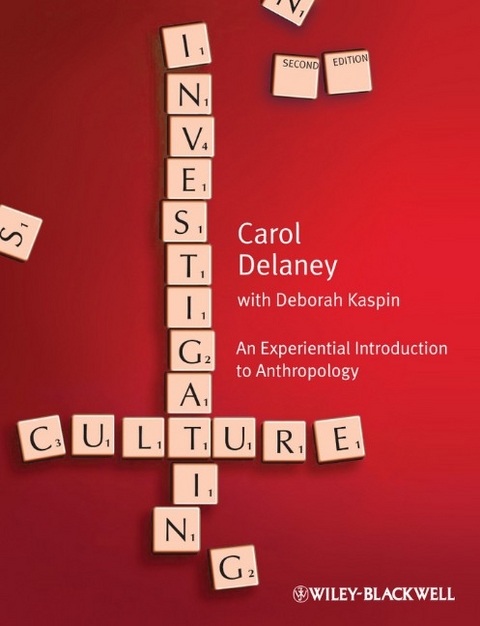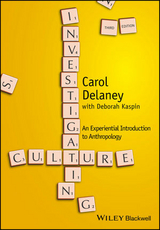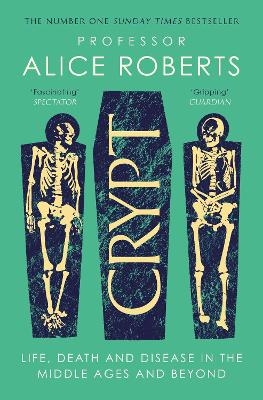
Investigating Culture
Wiley-Blackwell (an imprint of John Wiley & Sons Ltd) (Verlag)
978-1-4051-5424-6 (ISBN)
- Titel erscheint in neuer Auflage
- Artikel merken
In its new Second Edition, the innovative and ever-popular Investigating Culture has been updated and revised to incorporate new teacher and student feedback. Carol Delaney and Deborah Kaspin provide an expanded introduction to cultural anthropology that is even more accessible to students. * Revised and enhanced new edition that incorporates additional material and classroom feedback * Accessible to a wider range of students and educational settings * Provides a refreshing alternative to traditional textbooks by challenging students to think in new ways and to apply ideas of culture to their own lives * Focuses on the ways that humans orient themselves, e.g., in space and time, according to language, food, the body, and the symbols provided by public myth and ritual * Includes chapters that frame the central issues and provide examples from a range of cultures, with selected readings, additional suggested readings, and student exercises
Carol Delaney is Associate Professor Emerita of Cultural and Social Anthropology at Stanford University. She is author of The Seed and the Soil: Gender and Cosmology in Turkish Village Society (1991) and Abraham on Trial: The Social Legacy of Biblical Myth (1998), and is co editor of Naturalizing Power: Essays in Feminist Cultural Analysis (1995, with Sylvia Yanagisako). Deborah Kaspin is an Adjunct Professor of Anthropology at Rhode Island College and has taught at University of Virginia, Yale University, Wheaton College, and Rhode Island College.
Preface to Second Edition. Acknowledgments. 1 Disorientation and Orientation. Introduction; how culture provides orientation in the world; what is culture and how do anthropologists investigate it? Learning to think anthropologically. Exercises. Reading: Laura Bohannan, Shakespeare in the Bush . 2 Spatial Locations. How do we situate or locate ourselves in space? Are notions of space universal or are they shaped by culture? This chapter explores these questions from macro to micro contexts, including discussion of maps, nations, segregation, public spaces, invisible spaces, and that space that is no place: cyberspace. Exercises. Reading: Sue Bridwell Beckham, The American Front Porch: Women s Liminal Space . 3 All We Have Is Time. Time is another major way we orient ourselves. What does it mean to be on time, out of time, or in time? This chapter discusses different cultural notions of time, the development of measuring time and clocks, the construction of the Western calendar and its rootedness in a sacred worldview, and birthdays and other markers of time. Exercises. Reading: Ellen Goodman, Time Is for Savoring . 4 Language: We Are What We Speak. Is language quintessentially human or do some other animals possess it? Communication versus language. Writing. The symbolic function and metaphor: different languages, different worlds? The social function: what information do you obtain from a person s speech? How are race, class, and gender infl ected in language? Exercises. Reading: Ursula LeGuin, She Unnames Them . Reading: Alan Dundes, Seeing Is Believing . 5 Relatives and Relations. Notions of kinship and kinship theory: to whom are we related and how? Is there any truth to the idea that blood is thicker than water ? What constitutes a family? This chapter also discusses different meanings of friendship, romantic relationships, and parent child relationships. Exercises. Reading: Penelope Eckert, Symbols of Category Membership . Reading: A. M. Hocart, Kinship Systems . 6 Our Bodies, Our Selves. Are we our bodies or do we have bodies? Different concepts of the body, the gendered body, the physical body, the social body. Techniques and modifications of the body. Tattoos. Body parts and organ transplants. Traffic in body parts. Body image, advertisements, and eating disorders. Bodies before and after death. Exercises. Reading: Horace Miner, Body Ritual among the Nacirema . 7 Food for Thought. What constitutes food? What makes a meal? What does it mean to say that food is love ? Relation of food to the environment. Fast food, slow food, genetically modifi ed food ( Frankenfood ). Food and sex. Food and civility. Food and religion. Cooking. Exercises. Reading: Jill Dubisch, You Are What You Eat: Religious Aspects of the Health Food Movement . 8 Clothing Matters. Clothing does more than cover the body; it is also a cultural index of age, gender, occupation, and class. Is it then true that clothes make the man ? Haute couture, sweat shops, clothing, and the economy. Exercises. Reading: Julio Ramon Ribeyro, Alienation (An Instructive Story with a Footnote) . 9 VIPs: Very Important People, Places, and Performances. Certain people, places, events, and cultural practices become iconic; they embody cultural myths or epitomize cultural values. Jesse Owens. Princess Diana. Why are certain people described as larger than life ? The Statue of Liberty. The Beatles. The global circulation of such icons. Exercises. Reading: Clifford Geertz, The Impact of the Concept of Culture on the Concept of Man . Index.
| Zusatzinfo | Illustrations |
|---|---|
| Verlagsort | Chicester |
| Sprache | englisch |
| Maße | 190 x 244 mm |
| Gewicht | 942 g |
| Themenwelt | Geisteswissenschaften ► Archäologie |
| Sozialwissenschaften ► Ethnologie | |
| Sozialwissenschaften ► Soziologie | |
| ISBN-10 | 1-4051-5424-1 / 1405154241 |
| ISBN-13 | 978-1-4051-5424-6 / 9781405154246 |
| Zustand | Neuware |
| Informationen gemäß Produktsicherheitsverordnung (GPSR) | |
| Haben Sie eine Frage zum Produkt? |
aus dem Bereich



